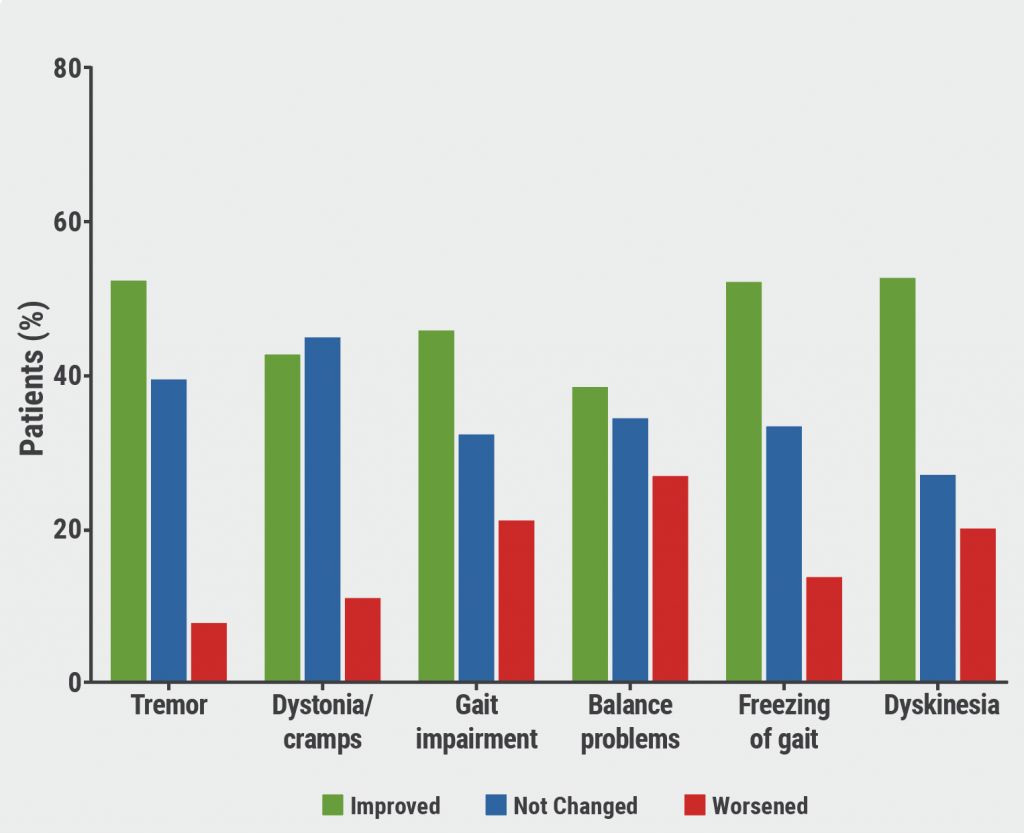In SCD, there is by definition no evidence of significant dysfunction. However, depression and anxiety are common, and the severity of SCD has often been found to correlate with the severity of this affective burden. Despite this correlation, the mechanisms behind this affective burden are not well understood, explained Dr Bahaaeddin Attaallah (University of Oxford, United Kingdom). The key factor underlying affective burden in SCD may be the processing of uncertainty. People prone to anxiety or depression may overact to uncertainty, i.e. gather more information than needed; likely due to an overestimation of uncertainty.
The presented study focused on the gathering of information (quantity and speed) when faced with uncertainty. A behavioural paradigm was used in which subjects were required to make decisions involving uncertainty and gather information before committing to these decisions. Participants were 27 SCD patients and 27 controls; mean age was 61 years. Participants also completed self-reported questionnaires of anxiety and depression. To investigate the brain networks involved, resting-state functional MRI was used.
Results showed that SCD patients require uncertainty to be lower; they do this by gathering more information prior to committing to a decision and doing this quicker than controls. However, no difference was observed in sampling efficiency. As expected, SCD patients were more depressed and more anxious. Affective burden was associated with rapid and extensive sampling.
In a network functional connectivity analysis, 40 regions of interest (ROIs) and 780 connections were analysed. These results showed that SCD patients, compared with controls, had specifically increased functional connectivity between the insular cortex and the hippocampus. Increased insular-hippocampal connectivity was also associated with overacting to uncertainty.
“Hyperreactivity to uncertainty mediates the association between increased insular-hippocampal connectivity and affective burden,” Dr Attaallah concluded. “This could be a key mechanism underlying psycho-cognitive manifestations in SCD and may be a possible treatment target.”
- Attaallah B, et al. Hypersensitivity to uncertainty in subjective cognitive impairment. OPR-204, EAN 2021 Virtual Congress, 19–22 June.
Copyright ©2021 Medicom Medical Publishers
Posted on
Previous Article
« ‘Mozart effect’ in epilepsy: why Mozart tops Haydn Next Article
Neural base of persistent hyposmia after COVID-19 »
« ‘Mozart effect’ in epilepsy: why Mozart tops Haydn Next Article
Neural base of persistent hyposmia after COVID-19 »
Table of Contents: EAN 2021
Featured articles
Letter from the Editor
COVID-19
First evidence of brainstem involvement in COVID-19
Cognitive/behavioural alterations persistent after COVID-19
Neural base of persistent hyposmia after COVID-19
Neurological symptoms and complications of COVID-19 affect outcomes
Cerebrovascular Disease
Intracerebral haemorrhage only slightly increases mortality in COVID-19 patients
Stroke with covert brain infarction indicates high vascular risk
Expanding precision medicine to stroke care
Dexamethasone not indicated for chronic subdural haematoma
Cognitive Impairment and Dementia
Severe outcomes of COVID-19 in patients with dementia
Promising diagnostic accuracy of plasma GFAP
Sex modulates effect of cognitive reserve on subjective cognitive decline
Hypersensitivity to uncertainty in subjective cognitive decline
Epilepsy
Minimally invasive device to detect focal seizure activity
‘Mozart effect’ in epilepsy: why Mozart tops Haydn
Migraine and Headache
Factors associated with decreased migraine attack risk
Pregnant migraine patients at higher risk of complications
Occipital nerve stimulation in drug-resistant cluster headache
Rhythmicity in primary headache disorders
Multiple Sclerosis and NMOSD
Typing behaviour to remotely monitor clinical MS status
Alemtuzumab in treatment-naïve patients with aggressive MS
No higher early MS relapse frequency after stopping ponesimod
Good long-term safety and efficacy of inebilizumab in NMOSD
Neuromuscular Disorders
Inability to recognise disgust as first cognitive symptom of ALS
Pathogenic T-cell signature identified in myasthenia gravis
Parkinson’s Disease
Levodopa-carbidopa intestinal gel in patients with advanced PD
New Frontier – Navigated Transcranial Ultrasound
Exploring the possibilities
Related Articles
August 18, 2021
Effect of prasinezumab on motor features in early PD

August 18, 2021
Levodopa-carbidopa intestinal gel in patients with advanced PD
August 18, 2021
Typing behaviour to remotely monitor clinical MS status
© 2024 Medicom Medical Publishers. All rights reserved. Terms and Conditions | Privacy Policy
HEAD OFFICE
Laarderhoogtweg 25
1101 EB Amsterdam
The Netherlands
T: +31 85 4012 560
E: publishers@medicom-publishers.com

